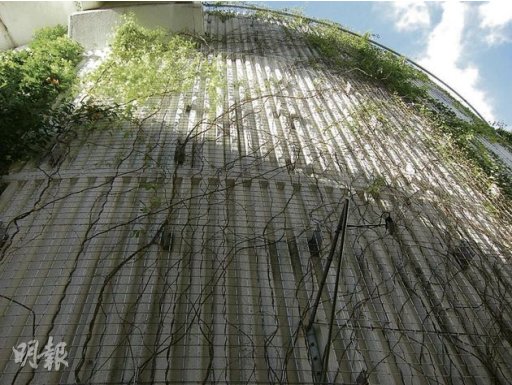
The 2012 International Conference on Environment, Chemistry and Biology-ICECB 2012 will be held during 29-30, December, 2012, in Hong Kong. ICECB 2012, aims to bring together researchers, scientists, engineers, and scholar students to exchange and share their experiences, new ideas, and research results about all aspects of Environment, Chemistry and Biology, and discuss the practical challenges encountered and the solutions adopted.
Sponsors: Asia-Pacific Chemical, Biological & Environmental Engineering Society (APCBEES)
Call for Papers
2012 International Conference on Environment, Chemistry and Biology-ICECB 2012 is the premier forum for the presentation of technological advances and research results in the fields of Environment, Chemistry and Biology. ICECB 2012 will bring together leading engineers and scientists in Environment, Chemistry and Biology from around the world.
Topics of interest for submission include, but are not limited to:
Chemical, Environmental, and Process Engineering
Environmental engineering and sustainable development
Process design and optimization
Product innovation, development and economics
Process intensification
Nanotechnology
New materials & structured products
Intelligent polymers
Green organic synthesis routes
Process integration
Environmental engineering & management
Sustainable & clean technologies
SCF as solvent substitutes
Chemistry and Chemical Engineering Fundamentals
Chemical engineering fundamentals
Physical, Theoretical and Computational Chemistry
Chemical engineering educational challenges and development
Chemical reaction engineering
Chemical engineering equipment design and process design
Thermodynamics
Catalysis & reaction engineering
Particulate systems
Rheology
Multifase flows
Interfacial & colloidal phenomena
Transport phenomena in porous/granular media
Membranes and membrane science
Crystallization
Distillation, absorption and extraction
Ionic liquids/electrolyte solutions
Multi-scale and/or Multi-disciplinary Approaches
Process system, instrumentation and control
Product engineering and product development
Product design & innovation
Nanomanufacturing
Controlled release of the active ingredient
Energy & nuclear sciences
Energy and environment
CFD & chemical engineering
Food engineering
Nanomaterials
Particle technology
Mathematical modeling in chemical engineering
Macromolecular Science and Engineering
Advanced materials processing
Systematic Methods and Tools for Managing the Complexity
Multiscale modeling
Process synthesis & design
Process control & operations
Process Safety Management
Supply chain management & business decision support
Advances in computational & numerical methods
Safety & risk management systems
Systems biology
Economics and Business Management
Process Analytical Technology - PAT
Software architecture, standards and interfaces
Integration of Life Sciences & Engineering
Biochemical Engineering
Biotechnology
Product Engineering in the Bio Industries
Self-organisation in the Bio-sciences and elsewhere
Delivery of the final product
Biotechnology applied to production of new and better quality food
Physical chemistry and thermodynamics for life sciences and biotechnology
Improvement of environmental remediation processes
Food process technology and engineering
The impact of bio-based polymeric materials
Biochemical and bio-molecular engineering
Bioengineering and biomedical engineering
Biological and Medicinal Chemistry
Energy and environment
Forest product processing
Milk product processing
Environmental dynamics
Meteorology
Hydrology
Geophysics
Atmospheric physics
Physical oceanography
Global environmental change and ecosystems management
Climate and climatic changes
Global warming
Ozone layer depletion
Carbon capture and storage
Biofuels
Integrated ecosystems management
Satellite applications in the environment
Environmental restoration and ecological engineering
Habitat reconstruction
Biodiversity conservation
Deforestation
Wetlands
Landscape degradation and restoration
Ground water remediation
Soil decontamination
Eco-technology
Bio-engineering
Environmental sustainability
Resource management
Life cycle analysis
Environmental systems approach
Renewable sources of energy-energy savings
Clean technologies
Sustainable cities
Health and the Environment
Health related organisms
Hazardous substances and detection techniques
Biodegradation of hazardous substances
Toxicity assessment and epidemiological studies
Quality guidelines, environmental regulation and monitoring
Indoor air pollution
Water resources and river basin management
Regulatory practice, water quality objectives standard setting, water quality classification
Public participation
Economic instruments
Modelling and decision support tools
Institutional development
Transboundary cooperation
Management and regulation of point and diffuse pollution
Monitoring and analysis of environmental contaminant
Ground water management
Wastewater and sludge treatment
Nutrients removal
Suspended and fixed film biological processes
Anaerobic treatment
Process modelling
Sludge treatment and reuse
Fate of hazardous substances
Industrial wastewater treatment
Advances in biological, physical and chemical processes
On site and small scale systems
Storm-water management
Air pollution and control
Emission sources
Atmospheric modelling and numerical prediction
Interaction between pollutants
Control technologies
Air emission trading
Solid waste management
Waste minimization
Optimization of collection systems
Recycling and reuse
Waste valorization
Technical aspects of treatment and disposal methods (landfilling, thermal treatment etc)
Leachate treatment
Legal, economic and managerial aspects of solid waste management
Management of hazardous solid waste
Water treatment and reclamation
Advanced treatment of water and secondary effluents (membranes, adsorption, ion exchange, oxidation etc)
Disinfection and disinfection by- products
Management of water treatment residuals
Aesthetic quality of drinking water (taste, odors)
Effect of distribution systems on potable water quality
Reuse of reclaimed waters
Important Date
Paper Submission (Full Paper) Before August 25, 2012
Notification of Acceptance On September 15, 2012
Final Paper Submission Before September 30, 2012
Authors' Registration Before September 30, 2012
ICECB 2012 Conference Dates December 29-30, 2012
For more details: http://www.icecb.org/index.htm



















